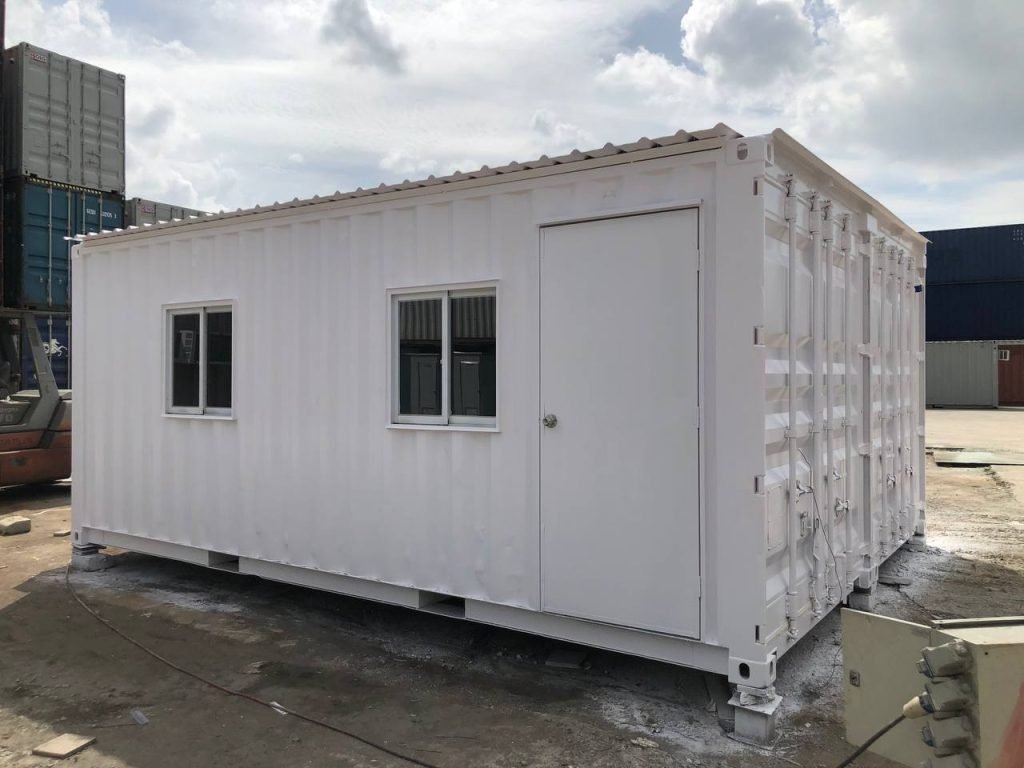Shipping Container Farms: Growing Fresh Produce in Urban Jungles

In the heart of bustling cities, where concrete, steel, and glass dominate the landscape, a quiet revolution is taking place. Shipping container farms, a relatively new concept in urban agriculture, are transforming the way we think about food production. These compact, mobile, and efficient farms are bringing fresh produce to urban jungles, offering a solution to some of the most pressing challenges faced by modern cities.
The Rise of Shipping Container Farms
As urban populations continue to swell, the demand for fresh, locally sourced produce has never been higher. However, traditional agriculture, with its reliance on vast expanses of land and rural locations, struggles to meet this demand. Enter the shipping container farm—a novel approach to farming that takes advantage of the very heart of urban areas.
Shipping containers, once used to transport goods across oceans, are now being repurposed as high-tech, climate-controlled farms. These containers, typically 40 feet long, are outfitted with hydroponic or aeroponic systems that allow plants to grow without soil. Instead, nutrient-rich water or mist is delivered directly to the plant roots, maximizing growth while minimizing water usage.
Benefits of Shipping Container Farms
One of the most significant advantages of shipping container farms is their ability to thrive in urban environments. Traditional farming requires large tracts of land, but container farms can be set up in parking lots, rooftops, or even inside warehouses. This proximity to consumers reduces the need for transportation, leading to lower carbon emissions and fresher produce.
Another benefit is the year-round growing capability. Traditional outdoor farming is subject to seasonal changes and weather conditions, but container farms operate in a controlled environment. This means that crops can be grown 365 days a year, providing a consistent supply of fresh produce, regardless of external conditions.
Moreover, shipping container farms are incredibly water-efficient. Hydroponic systems use up to 90% less water than traditional farming methods. In a world where water scarcity is becoming a critical issue, this is a significant advantage. The closed-loop systems used in these farms also reduce the need for pesticides and herbicides, resulting in cleaner, more sustainable produce.
Addressing Urban Food Deserts
One of the most compelling reasons for the rise of shipping container farms is their potential to address urban food deserts. These are areas in cities where access to fresh, healthy food is limited or non-existent. Residents in these areas often rely on processed and fast foods, leading to higher rates of obesity, diabetes, and other diet-related health issues.
Shipping container farms can be placed directly in these underserved areas, bringing fresh produce to communities that need it most. By providing local, affordable food options, these farms can play a crucial role in improving public health and reducing food insecurity in urban environments.
Challenges and Considerations
While shipping container farms offer many benefits, they are not without challenges. The initial setup costs can be high, with the need for specialized equipment, lighting, and climate control systems. Additionally, the technology and expertise required to operate these farms are still developing, and there is a learning curve for those new to this type of farming.
Energy consumption is another consideration. While container farms are more water-efficient than traditional farms, they do require significant energy to power the lighting and climate control systems. As renewable energy sources become more accessible and affordable, this challenge may become less of an issue, but for now, it remains a factor to consider.
The Future of Urban Farming
Despite these challenges, the future of shipping container farms looks promising. As cities continue to grow, the need for sustainable, local food sources will only increase. Shipping container farms provide a viable solution to this problem, offering a way to grow fresh produce in the heart of the city.
Moreover, as technology advances, we can expect to see improvements in efficiency, cost, and accessibility. Innovations in renewable energy, automation, and data analytics will likely make container farming even more attractive in the coming years.
In conclusion, shipping container farms are more than just a trend—they represent a shift in how we think about food production in urban environments. By bringing agriculture into the city, these farms have the potential to transform urban food systems, making fresh, healthy produce accessible to everyone, no matter where they live. As we continue to face the challenges of urbanization, climate change, and food security, shipping container farms offer a glimpse into a more sustainable, resilient future.



